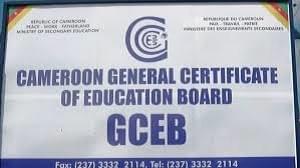The report that from March 31, 2023, passengers arriving in Ghana with the Ghana Card will not be required to fill out landing cards since their particulars will be accessed electronically is one of the trending stories in the Ghanaian press on Tuesday.The Graphic reports that from March 31, 2023, passengers arriving in Ghana with the Ghana Card will not be required to fill out landing cards since their particulars will be accessed electronically.
Stakeholders in the transport and aviation industry arrived at the decision after a meeting with the Vice-President, Dr Mahamudu Bawumia, in Accra.
In a Facebook post, Dr Bawumia said: “I held a productive meeting on improving the competitiveness of the Kotoka International Airport (KIA) with key stakeholders, including the Minister of Public Enterprises, the Minister of Transport and his deputy, the Ghana Airports Company Limited (GACL), the Ghana Immigration Service, the National Security and the Ministry of the Interior.”
“It was decided, inter alia, that airline passengers travelling to Ghana will, from 31st March 2023, no longer be required to fill out landing cards. This is because the same information can be obtained electronically,” the post added.
It also said processes passengers went through at the KIA would also be streamlined to avoid duplication and cut down time spent.
Dr Bawumia said the Ministry for the Interior and the Ghana Immigration Service (GIS) had been directed to ensure that the E-gate system was operational at KIA this year where passengers could use their passports or Ghana cards to access
It would be recalled that on March 1, last year, some Ghanaian passengers were for the first time admitted to the country with the Ghana card instead of passports.
The newspaper says that the Bank of Ghana (BoG) says it expects the Finance Minister, Ken Ofori-Atta, to brief Parliament on financial support the central bank provided to the government last year as part of measures to contextualise the significance of that action in keeping the economy together.
The central bank said its loans to the government were necessitated by a bulgy funding gap that was occasioned by revenue underperformance and lack of market access, following ratings downgrades.
“BoG financing was part of a crises management tool used in dealing with the difficulties of 2022,” it said in a statement signed by its Secretary, Ms Sandra Thompson on February.
As the economic woes deepened last year and funding sources dried up, the central bank said the state of government finances were pushed “into near external and domestic default,” making BoG the undesired option for a makeshift solution.
“With the above, the policy choices were not that of business as usual but rather a more challenged conduct of macroeconomic policy in the context of crisis,” the bank said in the statement responding to public commentary on the matter.
“The government needed to finance critical expenditures for which BoG needed to provide the necessary financing to avert a disorderly default of both servicing for domestic and external debt, including financing critical imports to keep the economy on the stable path,” it explained.
The release said BoG’s advances to the government totalled GH¢44.5 billion last year.
Until 2020, BoG had operated a zero deficit financing policy as agreed with the International Monetary Fund (IMF) under the country’s 16th fund-assisted programme.
The Ghanaian Times reports that the Chief Executive Officer (CEO) of the Ghana Grid Company (GRIDCo), Mr Ebenezer Kofi Essienyi, says two major power distribution companies in the country, the Electricity Company of Ghana (ECG) and the Northern Electricity Distribution Company (NEDCo) owed his outfit GH¢ 2.7 billion.
A situation he said was impeding operations of the company, especially in the areas of infrastructure development and efficiency of GRIDCo’s operations.
Mr Essienyi disclosed this in Accra on Monday when answering questions from journalists on its operations over the past six years.
He openly admitted that the debt was posing a serious challenge to its operations and called for a strategic way to addressing it.
Mr Essienyi said the government was fully aware of the debt situation and had taken some steps to ensure that operations of GRIDCo were not disrupted.
He explained that the debt if redeemed could help GRIDCo to pay compensation to people who had released their lands for it to expand its infrastructure and transmission lines.
Touching on progress made by GRIDCo between 2016 and now, Mr Essienyi said GRIDCo had achieved a 99.95 per cent availability of the National Interconnected Transmission System with fully automated and integrated business processes.
He pegged the country’s energy penetration rate to between 85 and 86 per cent.
The country’s installed power generation capacity was 5,231 MW while the Circuit-km of transmission lines was 6,472.23 and this included 69kv, 161kv, 225kv and 330kv with about 70 per cent fibre-optically equipped.
On his part, the Director of Finance at GRIDCo, Mr Sammy Nk¬ansah, said the debt was incurred due to challenge within the power distribution value chain, with the ECG experiencing some commer¬cial losses in its operations.
He said the government in 2020 implemented a Cash Flow Waterfall system, which ensured equitable distribution of revenue collected from customers among the power distribution companies in the country.
The newspaper says that President, Nana Addo Dankwa Akufo-Addo, has assured that the series of steps taken by the government will soon restore the economy back on track and bring relief to Ghanaians very soon.
According to the President, the government remained committed to finding solutions to the current economic challenges confronting the country albeit a global phenomenon not peculiar to Ghana.
Speaking at the 18th Consultative Council Meeting of the Anglican Church on Sunday, President Akufo-Addo indicated that he was aware of the difficult times in Ghana, just as they were for most people in the world.
“However, with the help of Almighty God, and backed by a sense of determination, hard work and collective sacrifices on our part, I am confident that we will successfully confront the difficulties, bring relief to the Ghanaian people, and return the economy back to the high rates of growth that characterised the management of our economy in the three years preceding the COVID-19 outbreak in 2020 and the Russian invasion of Ukraine,” he stated.
Government, according to the President, “is implementing a number of policy measures to this end, and, sooner rather than later, we shall overcome.”
Welcoming the 105th Archbishop of Canterbury, Rt Hon. Justin Portal Welby, and the Anglican Consultative Council, to Ghana, the President told the gathering that the Anglican Church has been a good example of what it means to love one another and give cheerfully to those in need, and it continues to play a significant role in the growth and development of the nation.
“All Anglicans are extremely indebted to the Primate and Metropolitan Archbishop and his team for the dynamism that we are experiencing in the Anglican Communion in Ghana presently. I have been involved, as well as following up with activities, of which I am proud as an Anglican,” he said.
Addressing the financial sustainability strategy of the Anglican Church in Ghana, which seeks to move the church to a position of self-reliance, President Akufo-Addo applauded the decision by the church to establish an insurance brokerage.
“I also wish to congratulate the Bishop, Rt Rev Dr Daniel Torto and entire membership of my diocese, the Diocese of Accra, for its substantial investment in the area of agriculture, through the cultivation of its 1,000 acre rubber plantation, the largest, private-owned rubber plantation in the country,” he stressed.




